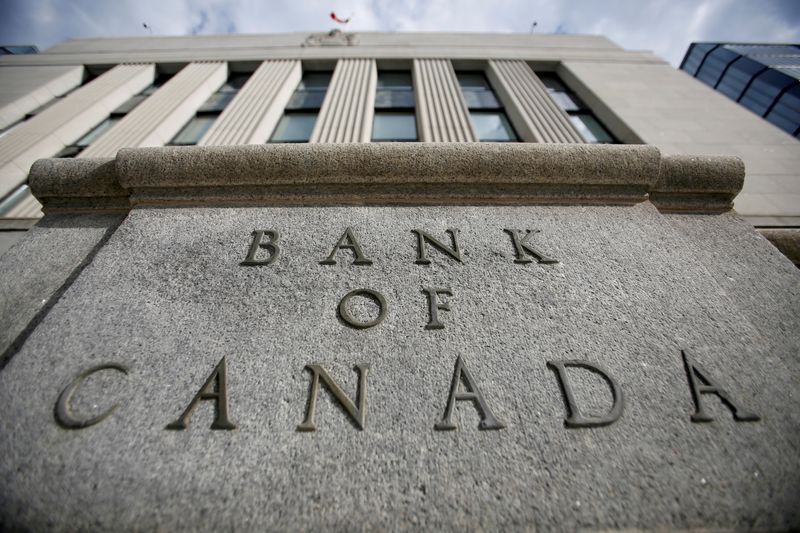By Fergal Smith
TORONTO (Reuters) - The Bank of Canada risks cutting short the current economic expansion if it shifts its focus from reducing slack in the economy to tamping down inflation, potentially setting the stage for the next cycle of rate cuts.
The dilemma for the central bank comes from a situation where inflation is driven not so much by economic strength but by factors, such as supply shortages, that are outside of its control and could lead to more enduring price increases if inflation expectations were to rise.
At a policy announcement last month, the BoC became the first central bank from a G7 country to exit quantitative easing and signaled it could begin hiking interest rates in April, three months earlier than previously thought.
"Investors are saying that the BoC will need to hike several times to deal with inflation," said James Athey, investment director at Aberdeen Standard Investments in London. "Inflation is supply-side (driven), cost-push and transitory, thus hikes will come at a time of falling growth."
Economic cycles can last from as short as a couple of years to more than a decade. The last expansion began after the global financial crisis in 2009, ending with the start of the COVID-19 pandemic last year.
The BoC had planned to let activity in the current cycle run hotter than usual in an effort to boost employment more than in past recoveries but its focus has now pivoted to moving inflation closer to its 2% target, analysts say.
Inflation was at 4.4% in September, the highest in nearly two decades.
Money markets expect a hike as soon as March and five in total next year, much more than is expected from the Federal Reserve. Tightening cycles tend to slow economic activity.
One clue that the market expects economic growth to slow is the shape of the yield curve. The gap between Canada's 2-year and 10-year yields has slumped from 130 basis points in favor of the longer-dated bond in March to as low as 54 basis points after the recent policy decision.
Typically, investors demand a higher yield for longer-term bonds unless they expect rates to fall. A negative spread, so-called curve inversion, would be seen as a recession warning.
"The repricing of the front-end has left the curve entering the coming hiking cycle flatter than it ever has been this far ahead of actual rate hikes," said Ian Pollick, global head FICC strategy at CIBC Capital Markets.
"That raises the risk the curve will prematurely invert."
The recovery could be boosted by Canadians spending some of their record cash hoardings built up during the pandemic.

But inflation is weighing on consumer confidence and the economy could be more sensitive to hikes than just a few years ago, after households ramped up borrowing to participate in a red-hot housing market.
"The market is a little pessimistic right now," said Robert Robis, chief global fixed income strategist at BCA Research. It is betting that "any rate hike cycle will be short-lived and potentially reversed fairly quickly.